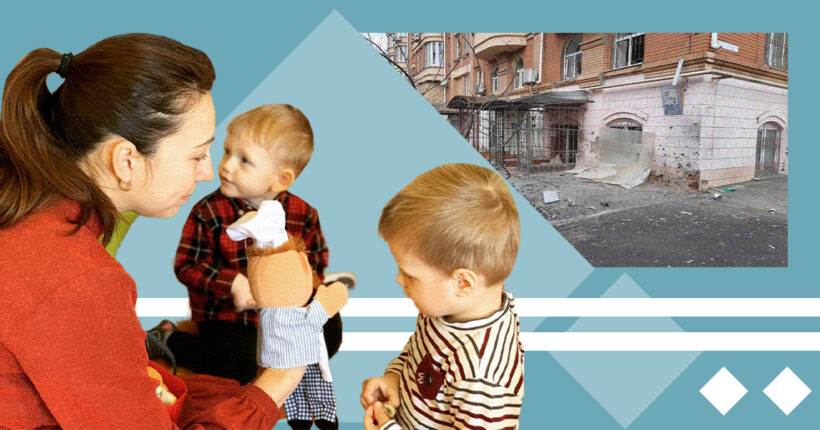
Rubryka talked to Natalia Antonenko, a child and family psychologist. For more than 16 years, she has been engaged in child development, art therapy, and fairy tale therapy. When the russian military entered Kherson, Natalia was there and did not leave the city until its liberation, waiting for the Ukrainian defenders. We asked her about life and raising children in the occupation and asked her to advise parents who, together with their children, are still waiting for liberation.
"My children didn't go anywhere except our yard"
— How was your February 24th like?
— When we woke up and looked out the window, we saw incredible chaos on the roads. We decided not to panic, to wait. This period lasted several days; these were days spent in the basement. Then the battle for the Antonivka bridge continued. Our boys [Ukrainian defenders, ed.] held the defense. And on March 2, the russians entered the city. Then we realized that we had to wait again. When we saw them walking down our street, I cried for the first time. Although there were many people in Kherson, the city was dead then, everyone was sitting at home, and no one went out.
After some time, people started trying to leave. There were a lot of shot cars, and a lot of families died. We decided to stay at home. Our family needed to hold on, help our parents and grandparents, and not lose our home. Watching how houses were looted and things carried away was difficult. While the russians did not yet feel "in charge," the Blood Center was working, and we donated blood. Cancer patients were not allowed to be taken out, and there was no medicine. But the Kherson people held on to each other.
When we heard the explosions in Chornobaivka, we were thrilled that our boys were working. We have learned well that when our HIMARS arrives, it will destroy one house, but the whole block will remain intact. And now, when the russians shell us, we have half a block of devastation at a time.
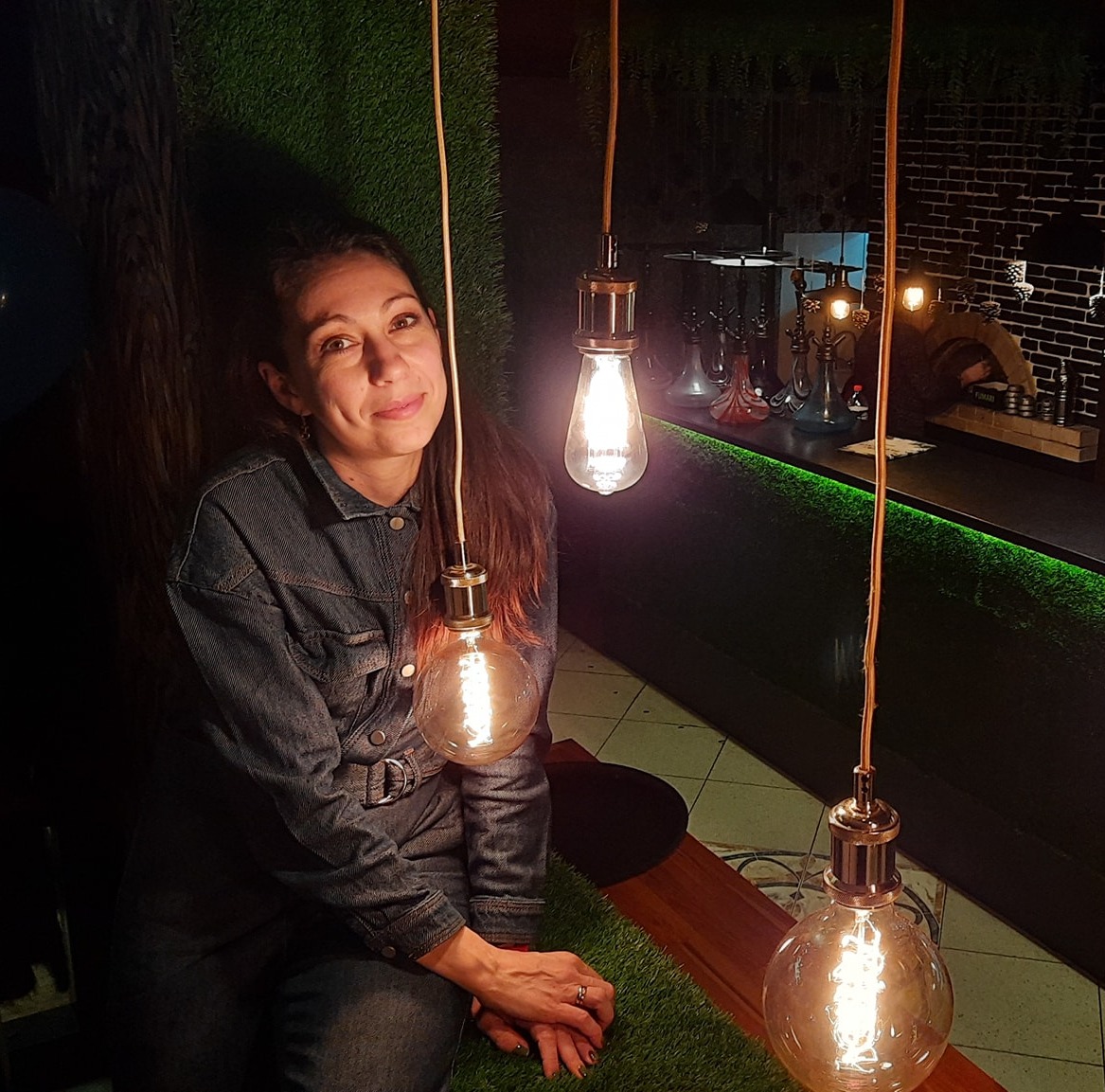
— Tell us about the time when you lived under occupation? How was it?
— During the occupation, no one could voice what they thought. I also could not say that russia is an aggressor. I have two children, and I was afraid for them. Living under occupation and donating to the army is a huge deal. Some older women took russian rubles, converted them into hryvnias, and donated them to the Ukrainian Armed Forces. Some torn rubles in front of mail carriers. We tried to hold on.
Of course, sometimes there was despair, for example, when the russians blocked the information space. The russians pressed hard. Throughout the city, the occupiers were handing out candy to children, saying, look how good we are, and the Ukrainian army is shooting at you. Sometimes they provoked children if they did not want to take sweets.
— How did you feel when the Armed Forces of Ukraine liberated the city on November 11?
— Before that, I was constantly asked: "Natasha, when will you leave the city?" And I said that I wanted to meet our boys here. On November 11, we understood that we no longer had electricity, the russians bombed everything, and most likely, they had left, so our guys would come. We were sitting in the house and heard car horns. For Kherson, during the occupation, car signals were something incredible. My son and I went out, and we looked. We saw cars with our flags driving.
Afterward, we went to Svobody Square and saw the first guys driving ATVs. It's an incredible feeling! But at the same time, we had thoughts of "what to expect," "maybe it's a provocation," and "maybe not all russians have left the city." Therefore, there was still a feeling of danger.
But we were in the square on the second and third days after liberation. This is fantastic when you understand that what is happening is not fiction or a dream. We are free. We can walk down the street. We can not hide the phone and not delete videos from pro-Ukrainian rallies.
— What was the most challenging thing in the occupation?
— It was tough to think that the life you lived would ever return. Before [the occupation], I went to work, and I worked with children; I enjoyed what I was doing, planning something. In the occupation, you can wake up and look for something to eat for half a day. In one store, we bought bread. In another, we bought two chicken thighs. Then we bought milk from an older woman on the street. And maybe you don't need it, but you purchase it because the older woman is selling it, and you want to support her. It was challenging to live in such a household.
Children primarily felt restrictions — on the right to say what they think and not being able to watch Ukrainian television. We have a satellite dish, and we have made it so that we are aware of all events in Ukraine. It was difficult not to go outside. My children did not go anywhere for a long time except in our yard.
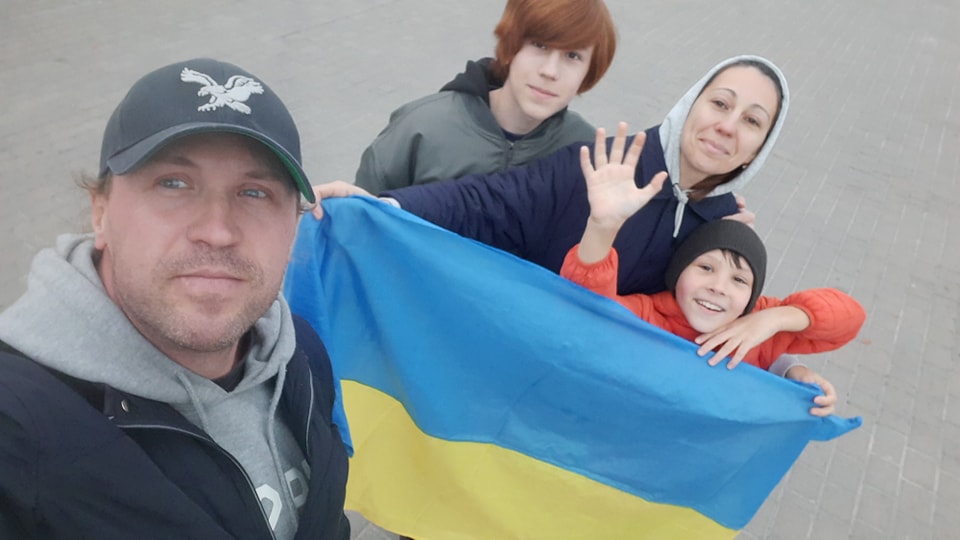
"We are close"
— What gave you strength and faith?
— Communication with guys from the Ukrainian Armed Forces. I had opportunities. The guys asked me: "Natalia, good afternoon, how are you there?" and I said: "Everything is fine, we are waiting," and received the answer: "We are close." That is, they always said, "we are close." Some parents of the children I work with sent me videos or photos from a liberated village in the Kherson region and said: "They are nearby. Hold on." It was very supportive. When the liberation began in the Kharkiv direction, we were thrilled and waited for our turn.
— That is, you did not have complete informational isolation? The Kherson branch of Ukraine's Public Broadcasting Company was immediately seized, Ukrainian broadcasting was interrupted, and russian propaganda began to sound. Did people believe it?
— Many began to believe. Many were brainwashed by propaganda quite quickly, such as older women who remembered the USSR and thought russia was here forever. The occupiers drove through the streets and shouted over the loudspeaker, "russia is here forever! Take your passports!" After the referendum, they could knock on the gates and tell people that they would be evicted from their homes if they refused to take russian passports.
— You have two children. How did you start talking to them about the fact that Kherson was under occupation and that life was changing?
— I have two boys, 14 and 8 years old. At the beginning of the war, they were terrified. We calmly talked about it. I explained that they were safe as long as we, the parents, were nearby. Generally, it is challenging for parents to broadcast faith and confidence. Because we also experience emotional "swings" and have different emotional states.
My children knew that we were Ukrainians. We watched Eurovision, listened to the Stephania song, and spoke Ukrainian at home. But when they went outside, I asked them to speak russian. I remember walking through the market once, and somehow, I said something in Ukrainian. People around looked at me apprehensive! Their looks read: what are you doing? You can't do that now. And I realized that it was probably really dangerous.
In the occupation, we sought safety in our actions. We wanted to make sure we were safe. Yes, in the beginning, the children were nervous. But over time, somehow, it became easier because we were all together, all for each other. In September, my sons went to the Ukrainian online school.
Many children went to russian schools because the russians intimidated their parents. They said that they would take away the children. We hid our boys. We didn't go anywhere with them, and we didn't go out, and they studied online. It seems to me that since many children went to a russian school, the russians did not make it their goal to go from house to house and catch children. Therefore, while there was the Internet, children studied.
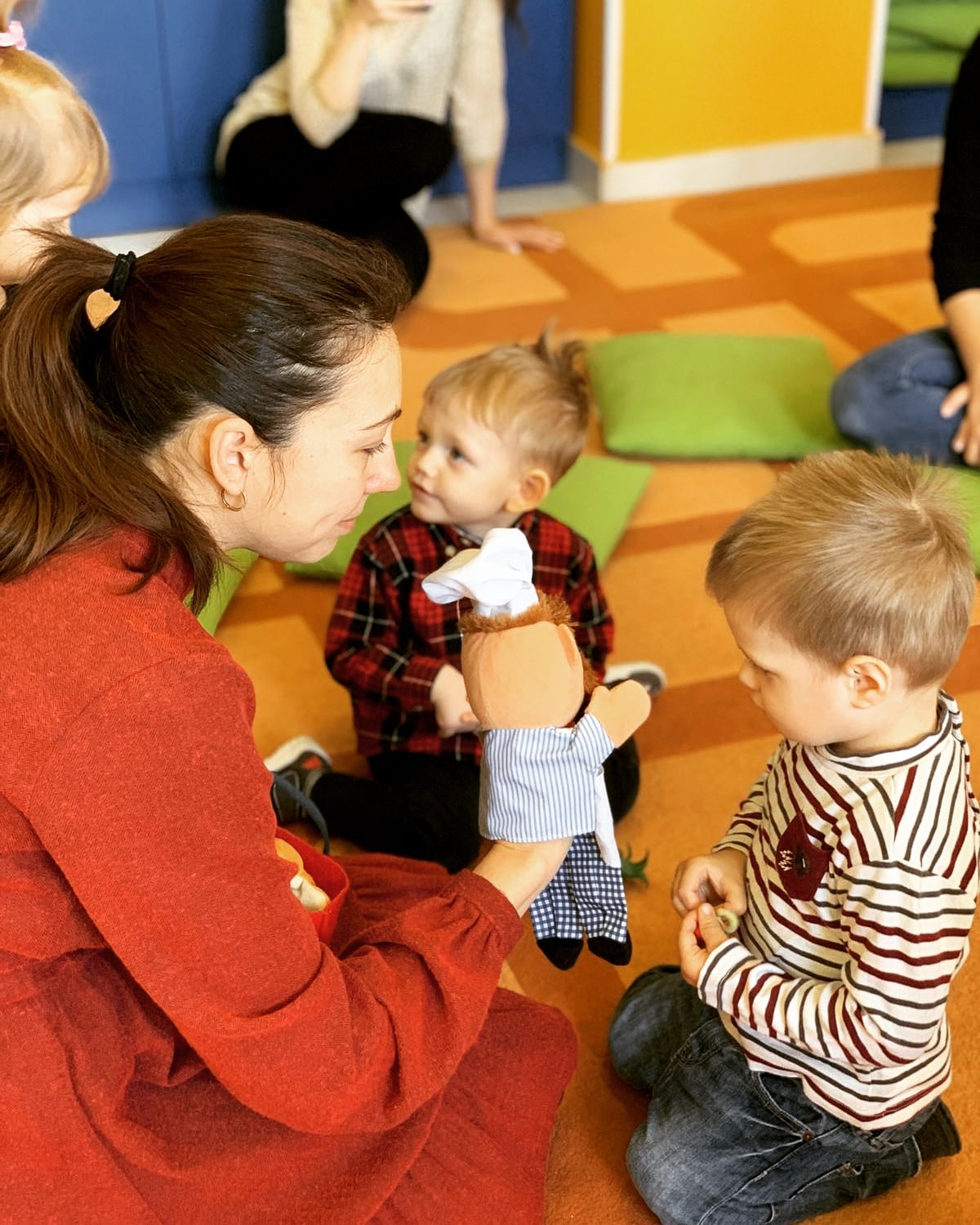
— Did your sons ask difficult questions to which you were looking for answers? For example, about life in the occupation, the future, and what will happen next?
— Perhaps the most difficult question was, "when will it end?" I answered that I could not know for sure, but when I found out, I would tell them. I have children in therapy who are currently abroad. So one girl said, "Natasha, are you in Kherson? Tell me the first thing when the war ends." When we were de-occupied, and our guys came in, there was a connection, so I called that child and said: "We are de-occupied, but that doesn't mean the war is over," and she replied: "Oh, how good. And when it's over, will you tell me?" That is, children trust people who broadcast confidence. And this is probably the most important thing.
I had a boy in therapy who feared Chornobaivka because of the constant explosions. He began to fear thunderstorms. One summer, a thunderstorm started during our therapy session, and he hid under a table. This feeling of fear will probably be with him for many years to come. But we tried to work, talked, drew, and talked about what could be done to react differently.
"Safety is a basic need"
— How does occupation affect a child's psyche?
— The most significant role here is played by the restrictions that exist during the occupation. That is, the child will most likely think a lot about what is safe and what is not during the following years of their life. On the other hand, I can say that the children who survived the occupation began to value life very much and appreciate simple, in our opinion, moments. For example, my youngest son was distraught when the russians blew up the entertainment center we used to visit in the first days of the occupation. Because, for him, it was associated with pleasant memories.
Or it happens that you want to buy a toy, but there are no toys in the city, and you explain to the child that everything has already been sold, and no new toys have been brought in for eight months. In the occupation, children learn to wait. I think it will be with them for the rest of their lives.
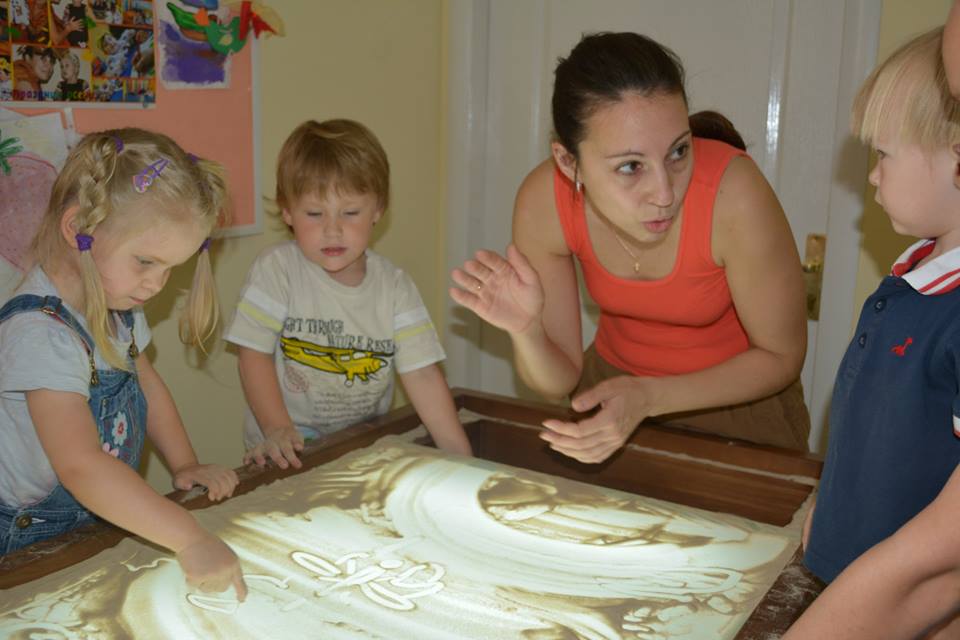
— What requests did the parents come to you with? Were there cases where the occupation somehow affected the child, so the parents wanted to help them?
— There were many cases of hidden aggression among children when the child suppresses aggression. For example, a child sees a russian soldier and says: "I hate them." But this is not a constructive feeling. Or a child sees an armored personnel carrier or a tank in the city center and asks: "Is it safe, mom?" To which the mother replies: "I don't know. Let's go home quickly." In such cases, we work on a sense of security and peace.
I asked the children a lot about what they would like and offered them to implement it in art therapy. That is, we splashed out these negative emotions. The children had a lot of energy because clubs, extra classes, etc., stopped. In our region, for example, activities for children on kayaks are popular. Children could release their energy there. This was lacking. Even now, it is probably not enough for those still here.
— How can parents stay busy and support their children?
— If it is difficult for parents to survive the occupation, if they feel the danger that could affect their lives, then they need to leave. You must find a way out of the situation, find peace, and feel safe. Security is a basic need. The parent broadcasts that to their child. That is, if an adult parent's sense of security is disturbed, they will not be able to transmit security to their children. Then you have to go and look for a better place for yourself and your children.
— Regarding practical advice to parents with their children in the occupation. How should they behave? What to do?
— It is necessary to maintain a specific daily schedule. It is vital for a child. They woke up, ate, studied, and did some homework. Each family has rituals that it uses throughout life.
They should walk in the fresh air. Let it be a country house, a grandmother's house, or a safe place. In Kherson, many people walk in places where people usually do not go to breathe fresh air.
If necessary and possible, allow the child to visit a psychologist. My colleagues from Kherson also worked with children, drawing with sand. People donated to us, and we bought everything we could and held free workshops for children.
Remember the hugs. There are not many hugs these days. This should be one of the daily rituals.
I suggest talking to children about explosions. Ask: "Do you think it was close or far?" Put rationalism into children's thoughts, and communicate with them. When, for example, you heard an explosion, ask the child whether they were very scared or not very scared. If you do not have electricity, take care of bright flashlights. This adds a feeling of a fairy tale and security to children. If you need to combine the child's sleep with yours, ask the child if they would like to sleep with you.
A month after our conversation with Natalia, a russian missile flew into her office. Miraculously, she and the child in the psychologist's class remained safe and sound. Due to constant shelling, Natalia plans to leave the de-occupied city with her children.









